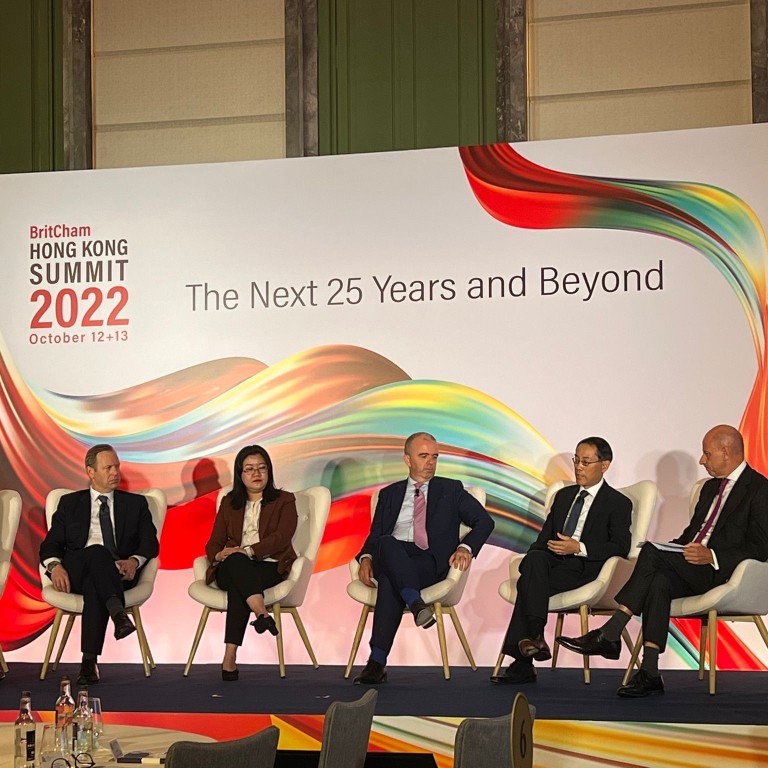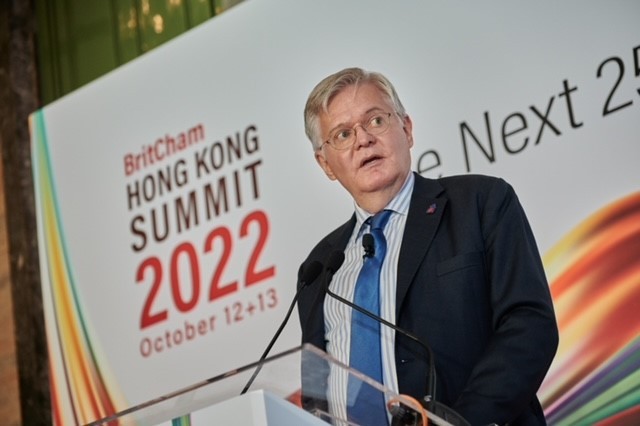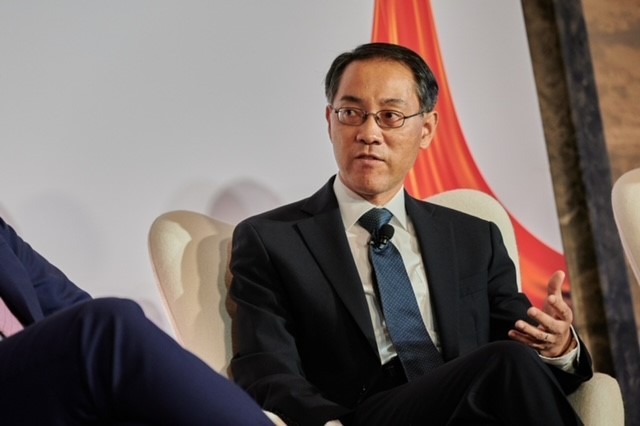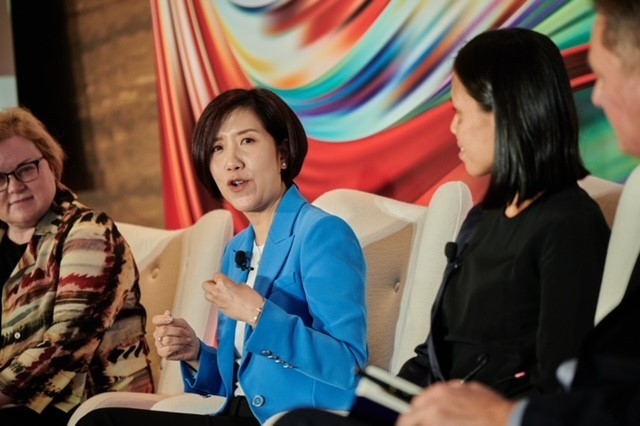
HK’s resilience turns risks into opportunities, say StanChart executives at BritCham forum
[The content of this article has been produced by our advertising partner.]
Talent is key to sustaining the success of Hong Kong’s banking and finance sector, from tapping into the Greater Bay Area and Asean markets, to driving digital transformation and managing ESG risks.
Twenty-five years on, Hong Kong is facing new and exciting opportunities that present great potential for its international business community. This is the optimism shared by the Standard Chartered speakers and panelists at the annual BritCham Hong Kong Summit, which was held on October 12-13 to commemorate the 25th anniversary of the establishment of Hong Kong Special Administrative Region.

In the opening address, Peter Burnett, immediate past chairman of the Chamber and managing director of Standard Chartered Bank (Hong Kong), a sponsor of the event, said over the past 25 years the city had gone from strength to strength, with a stronger reputation as an international financial centre, expanded transport infrastructure, and a more liveable environment.
Despite the crises that the city has been through, Hong Kong has shown resilience in the face of challenges, he said. “Institutions are fundamentally strong, people are industrious, and businesses are allowed to get on with what they do best—to deliver products and services that customers need, at fair and competitive prices. While I cannot predict the business opportunities of the next 25 years precisely, I do know there are plenty of them.”
In his keynote address, John Lee, Hong Kong’s chief executive, noted that Hong Kong has maintained close trade ties with the UK. “More than UK companies, BritCham represents Hong Kong businesses, Mainland enterprises and companies from all over the world. You're here because you believe in Hong Kong, and the bright future here for us. For all of us,” said Lee.
As well as keynote addresses, the conference features eight panel discussions, covering a wide range of topics such as opportunities and challenges faced by business leaders, the latest developments and opportunities in the Greater Bay Area (GBA), Hong Kong’s role in Asean, innovation and technology, climate change action and talent cultivation.

In a panel discussion on business opportunities and challenges, Shuang Ding, chief economist for Greater China and North Asia at StanChart, said while being a super-connector, it is important for Hong Kong to align its strategy with China’s long-term development goals.
The 20th National Congress of the Chinese Communist Party represents a once-in-five-year opportunity to understand the country’s priorities. Among the many policy directions announced, innovation, green development and common prosperity are high on the agenda, he said.
“On innovation, the US is very determined to restrict China's access to the world's cutting-edge technology, as exemplified by the recent chip exports ban imposed on China. China will continue to invest in innovation and reallocate resources from over-invested industries to innovation and technology. The goal is to reduce reliance on the US and develop homegrown tech.”

Tracy Wong Harris, head of sustainable finance for Asia at StanChart, said Hong Kong has seen tremendous growth in green finance in the past few years, providing more working capital for companies or projects looking to achieve decarbonisation goals.
“There’re now a wide range of sustainable finance products, from sustainability-linked products that can be in the forms of bonds, loans, or derivatives, to more innovative products such as ESG derivatives,” she said. “There’re also sustainable savings and green mortgage plans available for retail clients and borrowers.”
She adds the carbon market is also a very “hot topic” these days and in fact, StanChart as one of the founding members of Project Carbon has been working with other members to develop a platform, known as Carbonplace, to provide settlements infrastructure and systems for marketplaces and exchanges in the voluntary carbon market.

Florence Wong, head of human resources for Hong Kong, Macau, Japan, and co-head of human resources for GBA, said that leading banks are increasingly looking for talents with multidisciplinary skills, especially IT skills, and those who are familiar with the GBA market and ESG risk management.
The digital transformation across the banking sector is leading to a spike in demand for multi-disciplinary talents equipped with both industry knowledge and IT skills. Specific skill sets, such as artificial intelligence, data governance and analytics, human-machine communication, and cybersecurity, are particularly sought after, she said.
“We also need talents with knowledge in the GBA market, those who understand legal and policy requirements, customer needs, market practices, and they must be proficient in spoken Mandarin.”
Despite the Covid-related restrictions that are still in place, Burnett is optimistic that Hong Kong is on its way to return to normalcy. “It does feel like Hong Kong is getting back on its feet… we do need to welcome visitors back, tell the good stories about Hong Kong, which I think are clearly on the government’s agenda.”
